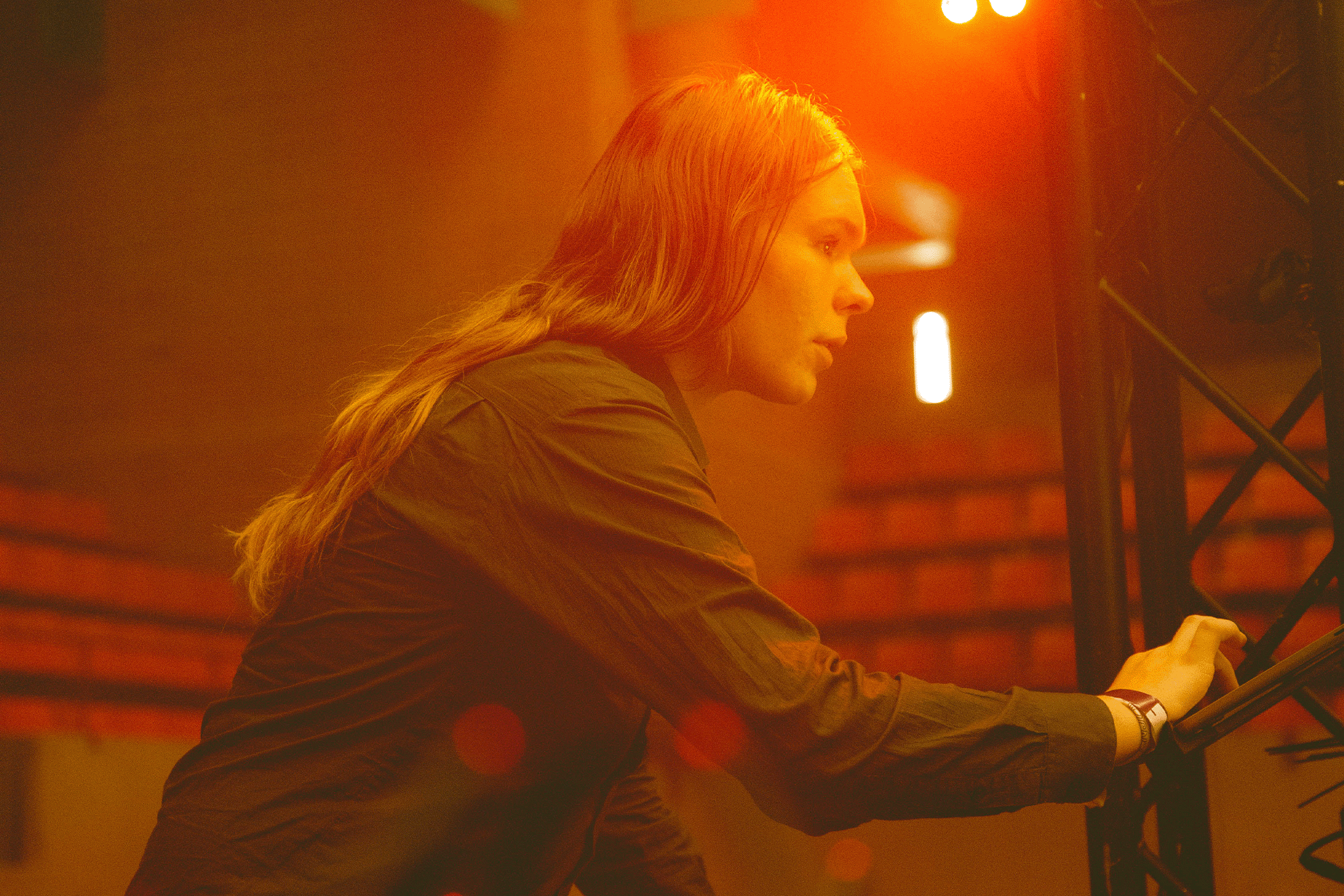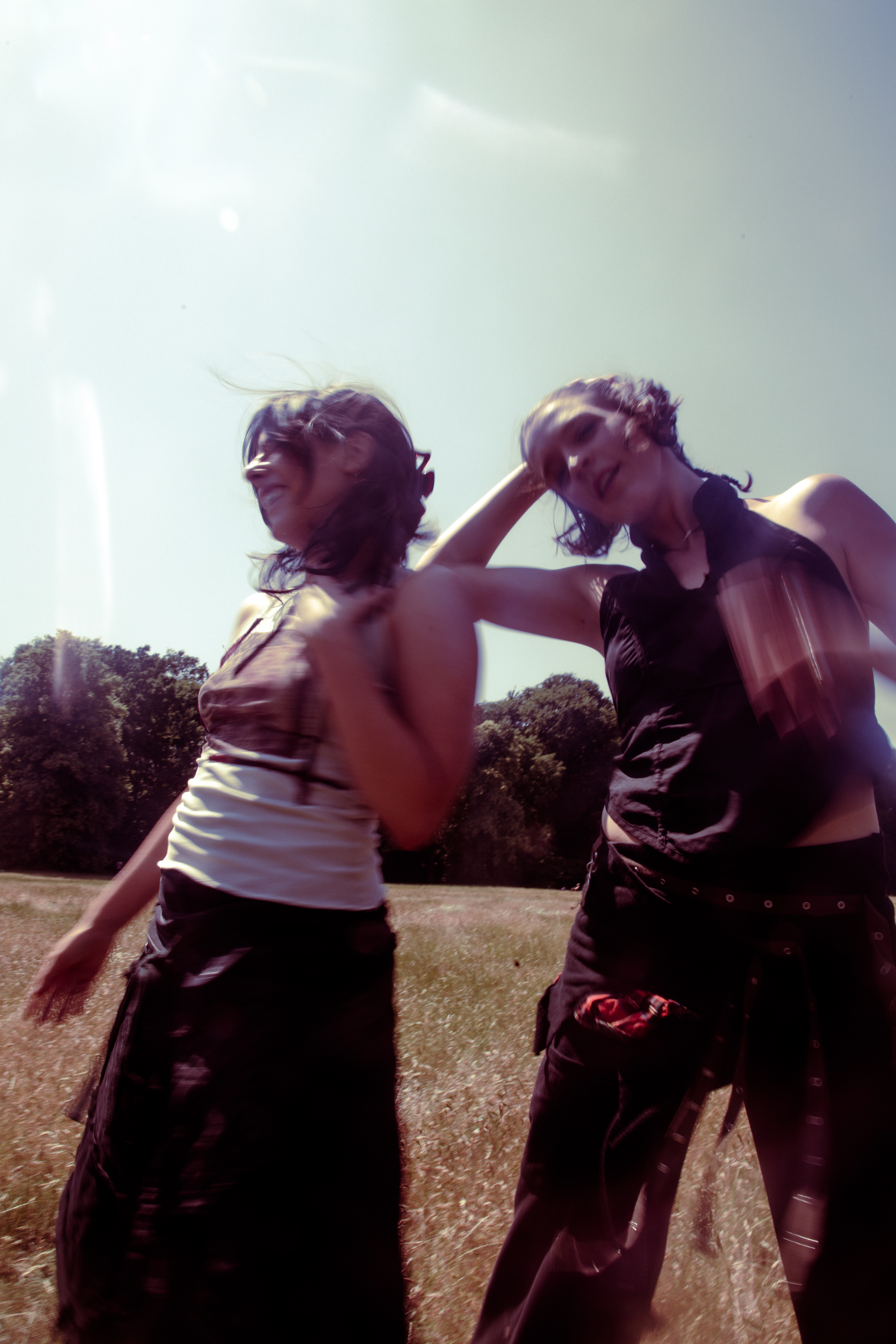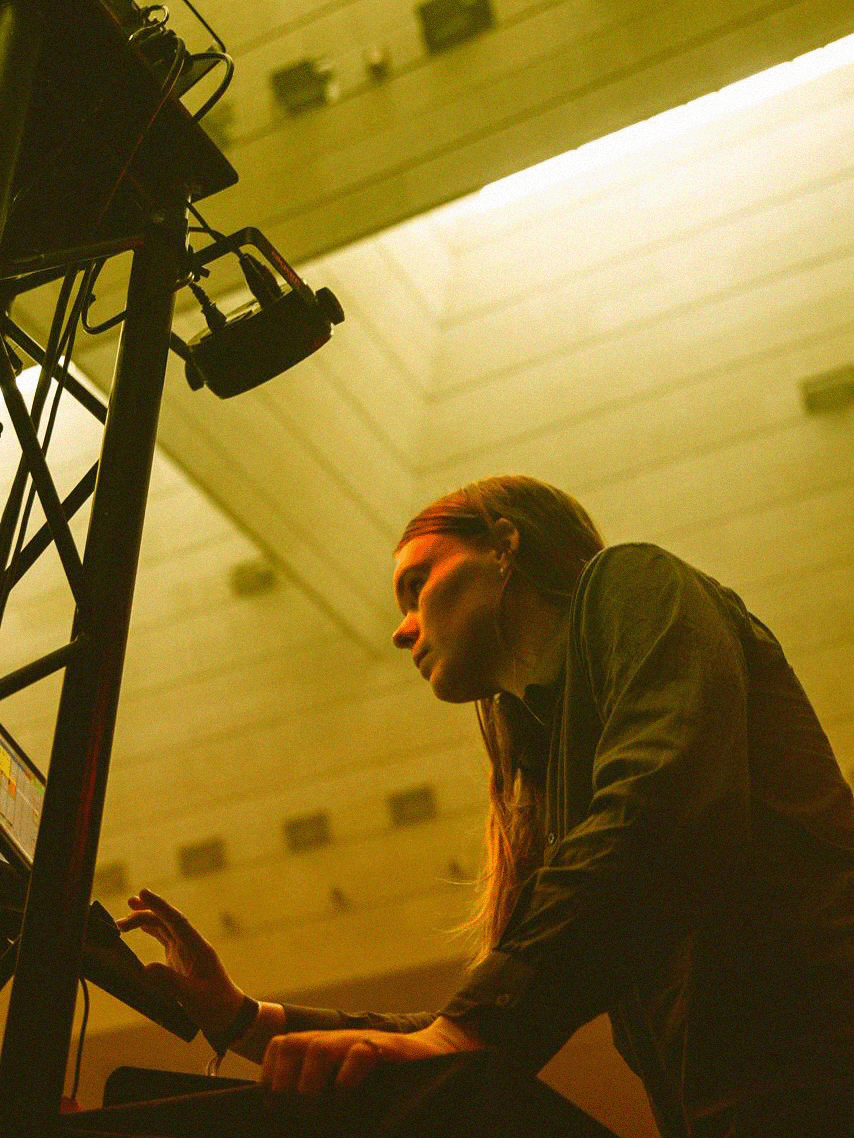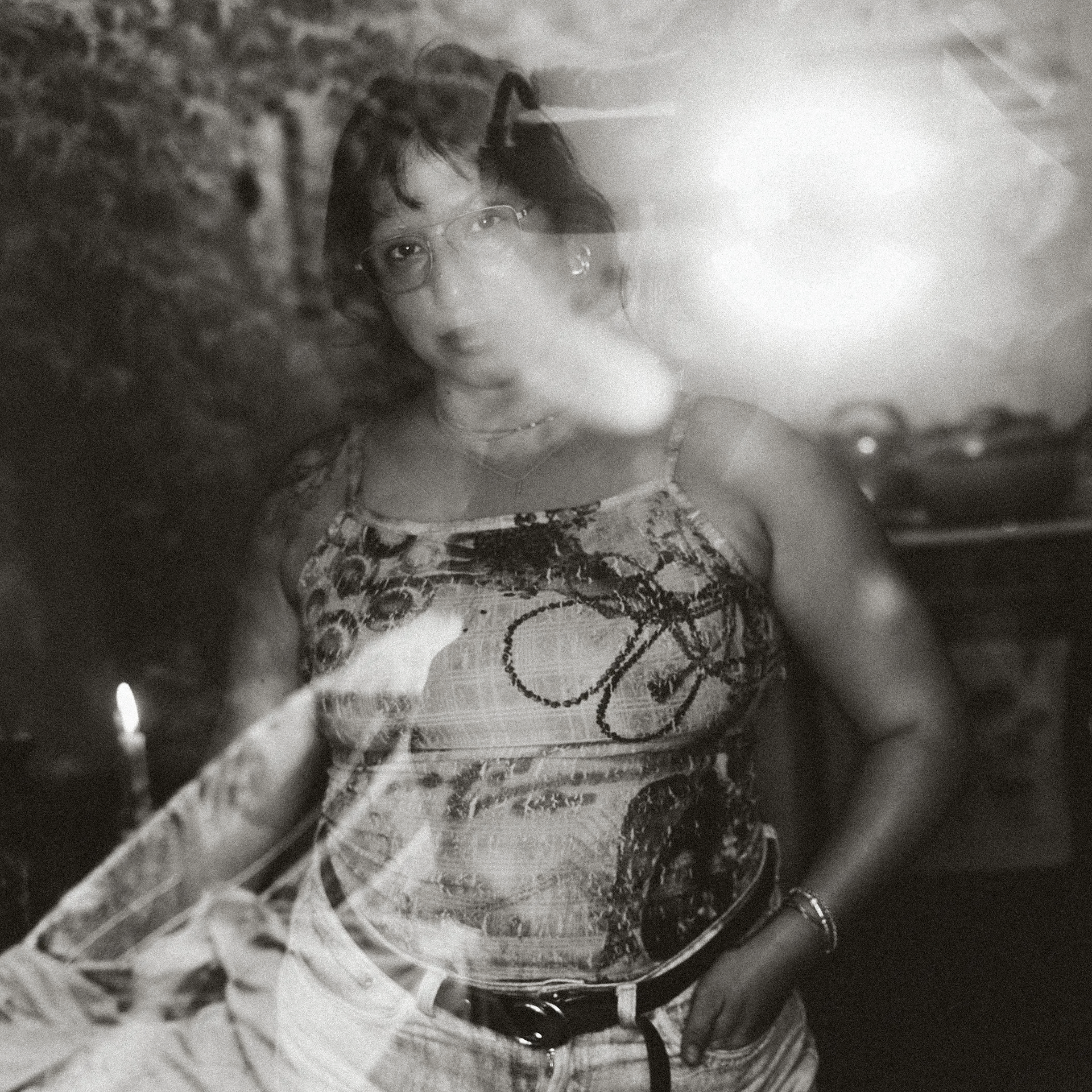 COMMENT
COMMENT
Girls on tour: Merit outside the vacuum
In the absence of up-to-date research, Lilly Grainger asked her favourite artists what it felt like to tour as a non-male identifying person, triumphs and room for growth within the industry.
While I can’t for the life of me remember when to pay Optus or where my lip balm is, I do remember my first bad performance in near-perfect detail. For the most part, the unease stuck because it was painfully predictable. It aligned far too closely with the warnings heeded by my wise mentors - embarrassing and boring.
We’d been warned about the snarling sound guy, the promoter ‘in a pinch’ and touchy patrons, but I hadn’t expected to see them so soon.
“You look like you don’t know what the fuck is going on,” a random man drawls. I stare back at him in disbelief, my USB and headphones in tow. I watch him sway back and forth as his spit begins to settle on my face.
“I had a few drunk guys unknowingly mansplaining my own live set to me, not realising I had been the one playing,” shares Gigi De Lacy (she/her), Gadigal Land/Sydney-based electronic artist, working under the alias Gi, “I'm sometimes confused why I don't look like a musician hahaha,” laughing off a mildly infuriating experience with cool grace.
In 2023, the Australian Government found that 44% of people working in live music were women, who consequently worked for 18% less than their male counterparts. The stats for producing artists and upper management were far grimmer. In 2017, the University of Sydney’s Australian Gender Equity Council found that only 5% of women existed in technical engineering and musical production roles.
Staggering, albeit shitty stats, not out of line with my experience, yet not entirely up to date either. Now touring for the first time, standing at the starting line of my own music career, I wondered if gender diversity had in fact improved, but was yet to be reported on, and if these changes had come with better experiences?
Wanting to know more, I extended the olive branch to some of my favourite artists: Gi, Gillielove, DJ Sarah and Tangela. Each contributing with an openness and a breadth of experience on navigating touring as a non-male identifying person, its highlights and pitfalls.

PICTURED: IN2STELLAR, GEORGIA BIRD (LEFT), DJ SARAH (RIGHT), CREDIT: NEELAM KHAN VELA
“The further up the lineup I’ve gotten, the better people have treated me, so it’s hard to know what’s society changing and what is related to where I’m at in my career,” notes DJ Sarah (she/her), “but I have a feeling we still have a long way to go.”
DJ Sarah enters this discussion from a unique position. One half of IN2STELLAR, touring extensively across the UK and Europe and also working as an A&R and artist manager. She looks after BIG WETT, whose presence and enigmatic ‘SONGS FOR $LUTZ’ feel at the forefront of an exciting future for new artists and loud women everywhere. DJ Sarah is also a co-founder of WIP Project, a database of FLINTA dance music industry members that was operational between 2020 and 2023, with plans to reboot in the near future.
“I do find some sense of relief in the fact that unconscious bias is a thing so hopefully people don’t realise what they’re doing and how damaging it is? ... We’re all victims of the patriarchy (men too!) and the music industry will remind you of this every single day.” “I often feel belittled in my work.” She continues, “not just as a DJ but as a manager, producer, A&R and there are times where I know for sure that this is because I am a woman.”
“I spent so many years advocating for diverse lineups, and I am so proud of that work, and still believe it’s important.” DJ Sarah notes, “but the deeper I get into the industry, the more I realise that the call is coming from inside the house. Like hello, no wonder the lineups aren’t diverse when they’re booked by a group of white men who only want to book artists based on ‘merit’ - as if merit exists in a vacuum outside of privilege, access, and opportunity.”
In my own experience, merit has been brought up frequently in email chains and in conversations with people in this industry. Although intended to flatter, it can at times feel insincere, especially when ushered by promoters and venues whose line-ups and values feel inconsistent. At best, it feels painfully naive to remain steadfast in a belief that those at the ‘top’ arrived there through sheer grit and determination alone. This seems to be, in part, built on a belief that the industry is ‘fixed,’ that inequality is no longer our responsibility to negate.
“I have a concrete rule where I say no to any show that feels like I'm getting booked for being a girl - If that's how promoters think, I know that the culture of their scene will be no good. DJs aren't paid enough to change that, or endorse 'safe space' shit if the promoter isn't working to foster a good community,” notes Gi.
Embarking on her next big EU tour and four months of solo travel, Tangela (she/her) feels the most confident she’s ever been. A combination of the right ‘community-minded’ gigs and support to carry her through the journey, but this process has come with time.
“It was a slow and organic process for me… The first year after lockdown I came to the EU, solely with the intention of connecting with people in the scene I’d been chatting to online … and played guest radio slots, Refuge Worldwide being the first overseas space to reply to one of my email’s with a ‘sure we’d love to have you’ and I remember being so grateful for them giving me a chance.”
“There were so many more ignored emails or rude promoters telling me not to contact them, that they’d reach out to me if they were interested or telling me I had to ‘play the game’... My first official ‘tour’ was organised entirely on my own. Shouts to the incredible bookers at Garage Noord, Poing and Future Intel for taking a chance on me and continually booking a diverse array of emerging artists.”
“The last two years I’ve been with my agency Phuture West and it’s the best decision I’ve ever made for my music career.” Shares Tangela, “Having a team (which feels more like a family) there to support you, champion you, stick up for you, share your wins and frustrations, makes riding the highs and lows of touring so much easier.”
Unsurprisingly, the expectations Tangela and her team have of venues and promoters aren’t exceptional. They are simple and, in fact, very human. “A caring team and someone who is always reachable is a must,” Tangela notes, “ a quiet space to decompress if need be, and transport to and from the venue should always be covered, not just touring internationals but for the safety of our locals as well.”

PICTURED: TANGELA, CREDIT: JACK AILWOOD
These expectations might also be outlined in a safety rider, a written agreement detailing the specific supports you need to perform safely. While I have seen many Grifter Largers and packets of corn chips, I’m yet to be asked for a safety rider of my own, which feels disappointing. At the same time, I’m equally disappointed that these requirements need to be spelled out so plainly. After all, we’re not after surveillance, just support.
Earlier this year, I was booked to play a ‘bucket list’ show. I was familiar with the club and stepped on stage to start my set. Not believing I was the DJ, a security guard grabbed my arm and threw me off stage, once again, USB and headphones in tow. There had been no one at the venue to support me, nowhere quiet to sit, and no safety policy I nor their security team appeared to be party to either.
“The best parties have no security and no barriers between artist and dancer. I don't ever want to be protected at a show, I think promoters need to emphasise nurturing positive relationships across the whole scene instead,” highlights Gi. “Recently I played at Mostra Festival in Barcelona, who have a really robust set of values around consent, safety and gendered inclusion - especially in the context of partying and consumption,” she outlines. “They make this very clear in their artist contracts, socials ahead of the festival, and on the doors for all attendees… As a result, it was one of the best parties I have ever been to.”

PICTURED: GI, CREDIT: Elena Blanco and Mostra
“I think cis people have a lot of social mobility, which is not afforded to everyone who is navigating new cities or places.” Shares Gi, “I found myself in a few pretty fucked up and physically dangerous situations when people haven't realised I was trans at first. I guess there's this assumption from people that their own neighbourhood is safe or easy or welcoming, which often isn't really the case.”
Gi continues, “I also really distinctly remember that when I was in Berlin, people I knew were getting arrested for protesting for Palestine, and police were going through the streets checking the passports of everyone who looked Middle Eastern. I found it really hard to care about the parties I was playing at. I felt so alienated that people couldn't see that the escapist hedonism of club culture actually benefits extreme state violence, and is in no way counter-cultural. That is also the same on Gadigal Land too; partying on stolen land can be violent.”
Despite its challenges, all of the artists I spoke with narrowed their best touring moments down to finding safe, aligned communities abroad. They described these experiences as artistically transformative and empowering, acting as a brilliant salve, eroding unfavourable experiences from the forefront of their time abroad.

PICTURED: GILLIELOVE
Hailing from Gadigal Land, local star Gillielove (they/them) has just made the move to Paris. Here they work as a makeup artist, a DJ and produce music. They speak positively of their experiences in the city and its promoters, who “have shown a lot of care in hosting.”
“I love the scene in Paris and have always been an advocate of the experimental, psychedelic, low-end driven sounds that have grown in France in general…” they share. “I’m grateful to now co-host a show on Station Station with Cotton Pills and start working on curating an event series here and inviting our own guests to radio and to play events around Paris. I’m also looking forward to finding a solo radio residency somewhere in the city, while trying to finish a couple of EPs for different labels.”
“As for being belittled or talked down to in my career. Of course, it happens from time to time. I’m sure it will continue to happen on occasion, but my experience of this hasn’t really left its mark in a memorable way to comment on. I guess that’s a good thing,” they note.
If we can take anything away from these perspectives, it's that investing in community and continuing to be critical of our scene is important, despite how uncomfortable or this may feel at face value. When we can remove ego and the haze of the patriarchy, these reflections only broaden our depth of connection and improve the art we disseminate, making it more culturally enriched and meaningful.
In this, we must also accept that artists of diverse backgrounds are facing different experiences than their peers. Just as challenges faced by Delia Derbyshire in her pioneering work at the BBC, or the sidelined founders of Bubbling House in the past century, a risk of exploitation and appropriation still looms. At the same time, we buy into the belief that dance floors are not inherently political spaces.
“The best thing about music is the social connections it makes,” highlights Gi, “I think touring artists should expect that parties they play don't placate or enable complicity.”
“I only want to play music that activates people into action.”
You can keep up to date with the artists: Tangela, DJ Sarah, Gi and Gillielove, their tours and upcoming shows on Instagram.
–
Lilly Grainger is a DJ, radio presenter and writer, contributing to Mixmag ANZ. You can find her on Instagram.


